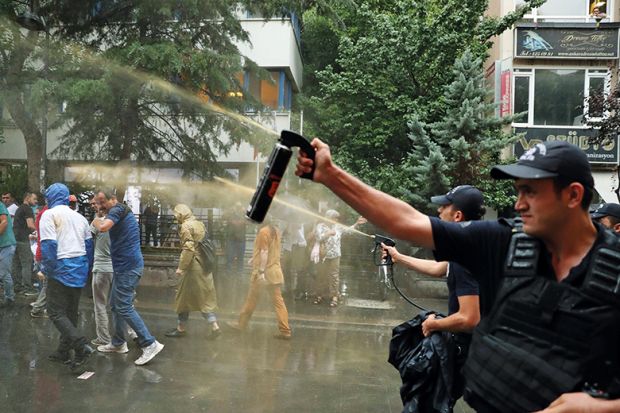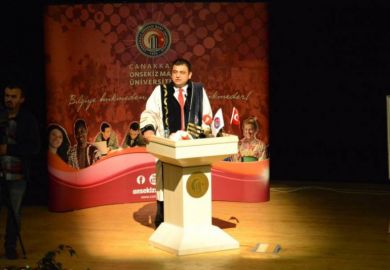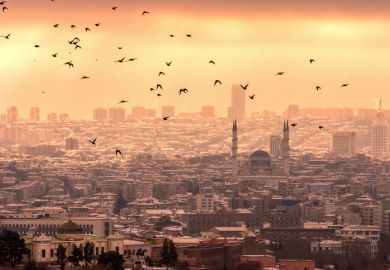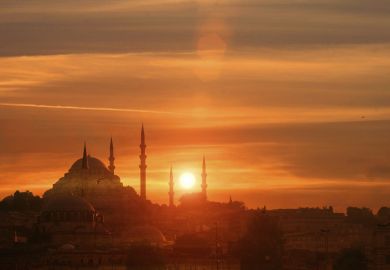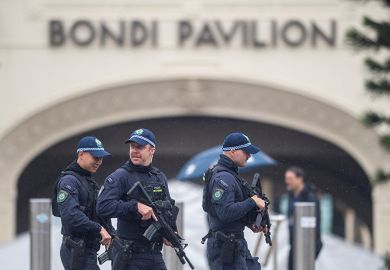Turkish academics dismissed from their posts during the country’s state of emergency will be forced to move out of big cities and established institutions if they are reinstated, one of the country’s scientific academies has warned.
Bilim Akademisi (Science Academy), which was set up in 2011 out of frustration that Turkey’s existing academy was becoming too government controlled, suspects that the move is intended to disperse academics with dissenting views across the country.
In its latest report, the academy draws attention to a new law that stipulates that academics reinstated to their posts should preferably be given positions in institutions established “outside the provinces of Ankara, Istanbul, and Izmir and after 2006” and that “the person shall be appointed to a higher education institution other than the higher education institution from which they had been dismissed by the Higher Education Council”.
The measure is “calamitous” and “completely disregarding the rule of law”, says The Science Academy Report on Academic Freedoms: 2017-18.
Yesim Atamer, a member of the academy’s executive board, said that although it was hard to divine the government’s motives, the rule could have been introduced to “prevent academics of parallel political views [from congregating] together, to ‘divide and conquer’. And also just to disturb these people, to frustrate, to intimidate.”
While the academy had not yet received word of any academics being relocated because of the rule, he said, it would monitor the law’s impact in the coming year.
The rule is the latest restrictive move against academics in Turkey. Since a failed violent coup attempt in July 2016, the government has dismissed about 8,500 academic personnel during a state of emergency, the organisation Scholars at Risk warned earlier this year, often accusing them of being members of a movement that it blames for the coup.
Scholars at Risk also said that the commission set up to judge whether people had been unfairly dismissed from their positions had reinstated just 2 per cent of dismissed or expelled scholars, university staff or students. It had made decisions on just 300 of 100,000 pending applications.
The academy report also warns of other new blows to academic freedom in Turkey. It cites the case of Gül Köksal, a researcher dismissed in September 2016 for signing an “Academics for Peace” petition early that year against Turkish military operations in Kurdish areas, an act of protest that led to investigations, dismissals and criminal charges for more than a thousand other academics.
In September this year, Dr Köksal discovered that an article that she had contributed to a scholarly book about cultural heritage management had been removed from a reprint published by Anadolu University.
On Twitter, she wrote that she was not the first persecuted academic to have had their contributions removed from books in the reprint.
Most dismissed academics “have not been reinstated; through the ongoing bans of international travel they have been prevented from participating in science conferences abroad; and the pressure has reached the point of having their contributions removed from publications they made in the past with others”, the Science Academy report warns.
POSTSCRIPT:
Print headline: Turkish scholars face internal exile
Register to continue
Why register?
- Registration is free and only takes a moment
- Once registered, you can read 3 articles a month
- Sign up for our newsletter
Subscribe
Or subscribe for unlimited access to:
- Unlimited access to news, views, insights & reviews
- Digital editions
- Digital access to THE’s university and college rankings analysis
Already registered or a current subscriber?
